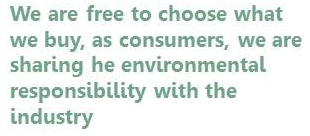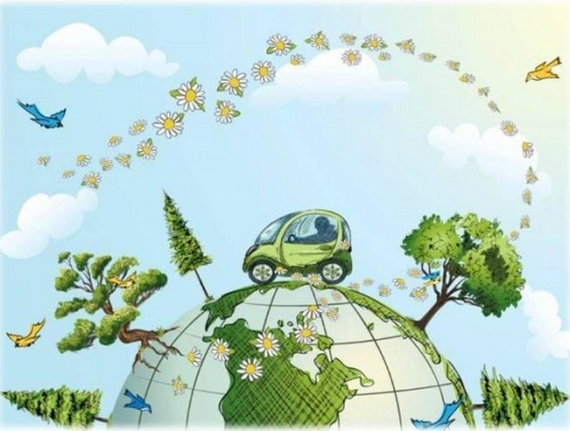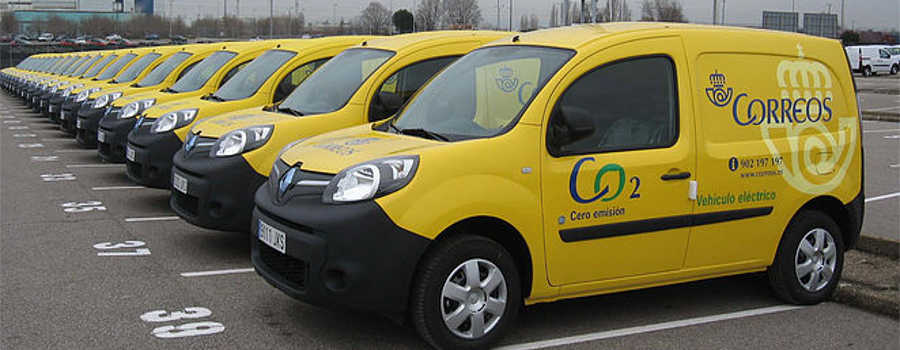
We could read some time ago, as a headline in a national newspaper, that the Chairman of Repsol, Antonio Brufau, literally stated that “It is false that the electric car has zero emissions” and “(…) emissions must take into account not only CO2 emitted by the vehicle, but those produced during manufacture“. With this headline and without realizing, the Chairman of REPSOL was advocating for considering the life cycle of a product to make environmental self-declarations. The fact is that this generalized doubt about the relationship between the electric car and the CO2 cannot lead us to think that it is not one of the most environmental mobility options because it is, what happens is that we should be meticulous when it comes to talk about the environmental performance of products.
One of the first examples of using life-cycle thinking assesment (LCA) in the late 60s, in the USA, when Coca-Cola® decided to explore alternative containers besides the glass bottle through this approach. And this concept arose from a very logical way, due to the emerging companies’ demand for distributing environmental loads, nobody liked being the most pollutant. Companies began to ask about an extended responsibility in this regard and through methodologies such as Life Cycle Assessment (LCA), one of the most internationally recognized and accepted methods to investigate the environmental performance of products throughout their life cycle, it could be verified that the associated environmental impacts with the manufacturing stage were not the most relevant in some cases.
Let’s see an example to summarize this issue. Imagine a conversation between Mary Ecological and Mary Nosy:
Mary Ecological: “Have you seen the garlands I have placed for the party? they are made of recycled paper because I am an ecological woman, you know“
Mary Nosy: “They are lovely, where did you buy them?”
Mary Ecological: “In a Chinese online shop, extremely cheap”
A Life Cycle Assessment (LCA) applied to these garlands would probably have confirmed us that Mary Ecological is attributing to herself a label that is not true. To buy a product in China can cause that an item made of recycled paper may have a hidden environmental price that is “disguised” using a more environmentally friendly raw material within the manufacturing process. And from the moment we are free to choose what we buy, as consumers, we are sharing the environmental responsibility with the industry, let´s keep this in mind.

When a company asks for what is the environmental profile of its product and / or process, CARTIF always advises to apply this methodology because the obtained results are a detailed environmental picture of the life cycle of its process, product or service (suppliers included), with the consequent opportunity to identify critical points and reduce costs, both environmental and economic. We have been able to check it many times in many of our projects. It doesn’t matter if we are a consumer or a product manager, to take a life-cycle approach to the environmental impact of the products we are acquiring, producing or selling, is essential to make decisions and to put in clear terms our environmental performance.
For this reason, the Chairman of Repsol said the principle of only considering the stage of use in an electric car to confirm that it does not emit CO2 is incorrect. Although it is perhaps the most significant phase (in fuel-consuming vehicles too), the assessment must be extended to its life cycle which, obviously, includes CO2 emissions from electricity production. Strictly speaking, we should either clarify that the electric vehicle does not emit CO2 during the stage of use or apply the LCA considering its life cycle (CARTIF has already done it) so that, based on the results, to generate environmental headlines.
We love the environmental assessments well done and undertaking rigorous environmental claims. Ask us and we’ll tell you how to do this!
- When “green” doesn’t come from doing an LCA, but only from a Pantone® colour - 1 August 2025
- Jeff Bezos reminded me of the importance of the carbon footprint - 17 September 2021
- Creating more liveable cities using nature - 13 September 2018
